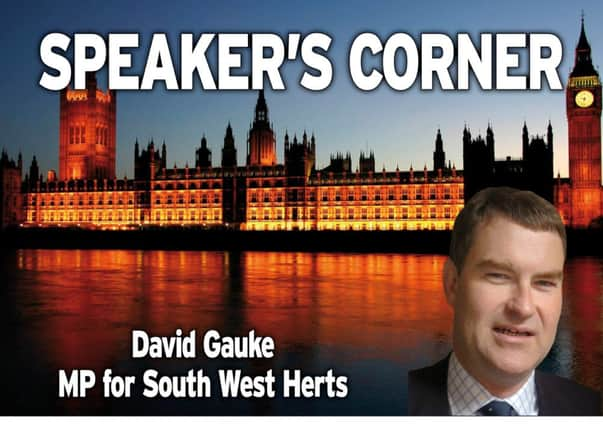Budget 2015: Remember how far we have come


As this newspaper is published in advance of the Chancellor delivering his speech, I cannot say anything about the contents of the speech, whether it be the measures announced or the economic forecasts revealed.
I can make one prediction. The chances are, if you watch the evening news on Wednesday night, you will see me and other Treasury ministers follow the Chancellor out of No 11 Downing Street for the photocall.
Advertisement
Hide AdAdvertisement
Hide AdThis will be my sixth Budget as a Treasury minister. If you add in Autumn Statements, this will be my 11th ‘fiscal event’ (to use the Treasury jargon).
Each event is memorable in its own way. My role has varied depending upon the specific measures that are considered and implemented.
For example, in last year’s Budget, I was very involved in developing the policy on freedom and choice for pensions. In the Autumn Statement, I was also very involved in the development of radical reforms to stamp duty land tax.
But the most memorable fiscal event for me was my first Budget as a Minister in 2010. Not so much for the particular policies I was involved in, but rather because it set out the direction we were to follow over the course of the Parliament.
Advertisement
Hide AdAdvertisement
Hide AdIt is easy to forget how desperate the situation was in 2010. Unemployment was rising and was around 8 %. The deficit was over 10% of GDP, the highest in our peacetime history.
A sovereign debt crisis was raging and there was a real risk the UK might be sucked in. Our banks had been crippled and small businesses found access to finance extremely difficult. And the impact of the financial crash was inevitably going to have an impact on living standards.
Within the Treasury team, we knew that the country could not go on as we were, living well beyond our means. But the measures necessary were unlikely to be popular.
Perhaps the best summary of the scale of the challenge we faced was a Matt cartoon in the Daily Telegraph. It shows a man leaving his home heading to work. At the door stands his young son. ‘Have a good day at the Treasury, Dad’ says the boy. ‘Be brave, try not to cry.’
Advertisement
Hide AdAdvertisement
Hide AdI don’t think the state of the economy ever reduced any of the Treasury ministers to tears, but I have a print of that cartoon in my office in the Treasury to remind me of the mood of the time. Certainly, when we appeared in front of the Downing Street cameras in advance of the 2010 Budget, we were a pretty sombre bunch.
Of course, the economy still faces many challenges but we have come a long way since then. In 2014, the UK grew faster than any major western economy. Unemployment has fallen rapidly, including in South West Hertfordshire where the number of jobseekers has halved since 2010.
The deficit has halved as a proportion of the economy from over 10 per cent to 5 per cent. The Autumn Statement predicted that the deficit would be eliminated by 2018-19 when the Government’s revenues will greater than its expenditure.
That 2010 Budget feels a long time ago. The economy has moved from bleak pessimism to cautious optimism.
Whatever you think about to today’s Budget (and I hope you like it), it is worth remembering where we were in 2010 and how far we have come.